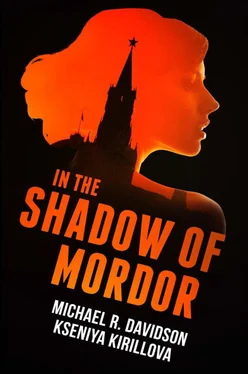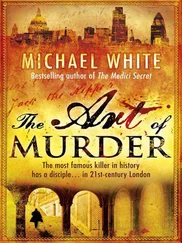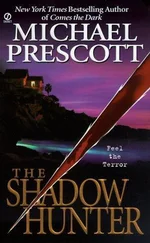The techniques of a Moscow surveillance detection route were part of his DNA. He drove through the Embassy gates that afternoon and turned left on Bol’shoy Devyatinskiy Pereulok , the left again at the end of the street onto Novinskiy Boulevard past the old US Embassy building. It would be a long day.
His first stop was the up-scale “Berlin House” shopping center where after a half-hour perusing the shelves, he bought two books on Russian history. His car was visible through the front windows, and he spotted nothing out of the ordinary, what he would have termed “hostile indicators.”
Next he made a second stop farther west across the Moskva River, using the Borodinskiy Bridge to funnel possible surveillance behind him. He spent an hour browsing the shops at the huge Yevropeyskiy Shopping Center, and still saw nothing that raised an alarm.
He continued in this manner gradually moving to less routine cover stops and resorting to increasingly provocative maneuvers, and still drew out no signs that he was being followed.
At last, he parked his car and jumped aboard a bus, after switching into a leather jacket and clapping a flat cap on his head. In the old days a CIA officer might have ducked into the subway, but now all the stations were packed with closed circuit television cameras, and that mooted the possibility of spotting physical surveillance.
Johnson followed this routine until dusk, each phase bringing him ever closer to the meeting site. Finally, after an exhausting four hours in perpetual motion, Johnson stepped off a bus on Kutuzovskiy Prospekt and walked slowly toward the parking lot of a large, circular building that housed a Battle of Borodino Museum.
This was always the most heart-pounding moment when the adrenalin electrified his veins. Had he been successful, or did a team of highly skilled FSB officers have him in their sights? Or had the agent been compromised and he was walking into an ambush?
He spotted the agent’s Volvo sedan parked in front of the museum, and there was a white box visible on the rear-window shelf — the safety signal.
Johnson approached the passenger-side door and slid into the car. Colonel Sergey Lopunin beamed at him and tapped his wristwatch. “Right on time, Vance, as usual. You are a good razvedchik .”
“Thanks, Sergey. I hope this is worth wearing out a pair of perfectly good shoes. How much time do we have?”
“Oh, as much as we need, but this won’t take long. I came across a bit of information I think will interest you.”
Lopunin switched on the engine, backed out of the parking space and swung into the traffic on Kutuzovskiy . He drove carefully and glanced frequently in the rear view mirror.
“Are you worried you’re being followed, Sergey?”
“One can never be too careful,” said the Russian, concentrating on his driving. “Does the name Vladislav Illarionov mean anything to you?”
Johnson’s face remained impassive. “Should it?”
Lopunin gave him a sideways glance. “You wouldn’t tell me if it did, would you? That’s fine. But you are interested in assassinations planned by the Russian special services?”
“Of course, Sergey. They’re becoming all too common here in Mordor and elsewhere.”
“I see you’ve adopted the jargon of the dissidents.”
“If the shoe fits… But you didn’t call this meeting to discuss language. What’s up?”
Johnson wanted to finish this business as quickly as possible and return to the anonymity of the streets.
“Our brothers at the FSB are on the warpath for this Illarionov. He’s in Ukraine now, apparently not far from the front lines, and they’re sending a team to eliminate him. It seems he has some sort of information that would cause the Kremlin a big problem if it came to light.”
Johnson concealed his alarm. “Has the team already been dispatched?”
“I don’t know, but if not, it will be soon. The FSB has its panties in a wad.”
“How will the team get into Ukraine, through the lines?”
“No. They’ll enter from the safe side from somewhere in the West, posing as normal visitors. Their local agents will supply the weapons. They’ll leave the same way when the job is done.”
“Are you sure of your source?”
Lopunin was slightly insulted. “Of course. I don’t trade in crap. I heard this directly from one of the Lubyanka planners, an old drinking buddy from KGB days.”
“What’s his name and position?”
Lopunin was reluctant to supply this information, but after some urging, he did.
After a half-hour of aimless driving, he pulled to the curb and Johnson got out of the car. Before closing the door he leaned back in to say, “Thanks, Sergey. Your efforts are very much appreciated.”
“Just see that the appreciation is placed in my bank account as soon as possible. I’ll have to get out of here one of these days.”
Johnson watched until the car disappeared into traffic. No one was following Lopunin.
It took another 45 minutes to return to where he’d left his car. After another 40 minutes, he drove through the Embassy gates some six hours after his departure that morning. He saw the Russian security guard dutifully note the time of his return.
He didn’t go to his office because there was a lot to think about and also because he knew his wife would be on tenterhooks.
The following morning, he was in his office after only one cup of coffee at home. He had not slept well despite his exhaustion.
He was obligated to report the results of last night’s meeting to Langley. He would send a single, strictly compartmentalized cable reassuring Headquarters that no security problems had arisen and transmitting the intelligence provided by Lopunin.
The intelligence would be of only passing interest to Langley, maybe a footnote to a report, but it meant a great deal to Johnson. The reason was that the subject of the information was Vladislav Illarionov
Johnson’s problem was that he had not shared anything with Langley about Illarionov. His reasoning had seemed sound, but now he was obligated to inform them of Lopunin’s warning. Johnson could either give Langley the whole story and wash his hands of it, or figure out something else.
He opted for something else, maybe something that in the end would bring the cautious bureaucrats on board without knowing exactly how it had come about. At least he could give Illarionov a fighting chance to survive.
So this is America .
Through the plane’s window Olga watched as the homeland of the Main Enemy rose up to meet her. They descended along a gentle glidepath, having first circled far west of Washington before turning back above the Shenandoah Valley for the final approach to Dulles International Airport. Through scattered patches of cloud, she saw large wooded areas with Autumn-painted leaves, farmland, highways and smaller roads — the arteries and veins of an arrogant and powerful country that wanted to rule the world.
The eleven-hour flight from Moscow was exhausting, but now a chill of apprehension ran through her as the wheels of the big jet screeched onto the runway.
The cleanliness of Dulles International Airport struck her, and the “people movers,” the huge bus-like vehicles on fat, oversize tires that carried the passengers from the plane to the main terminal were unlike anything she had seen before. They debarked into the cavernous immigration and Customs hall where she stood in the queue with other foreigners of all stripes.
She offered the passport control officer a radiant smile and handed over her passport — a claret-red, Russian passport. He took it as though her country of origin made no difference, noted the reason for her visit, stamped it and handed it back with a wave toward the baggage area on the other side of a Plexiglas wall. Olga smiled triumphantly. She had arrived behind enemy lines.
Читать дальше












